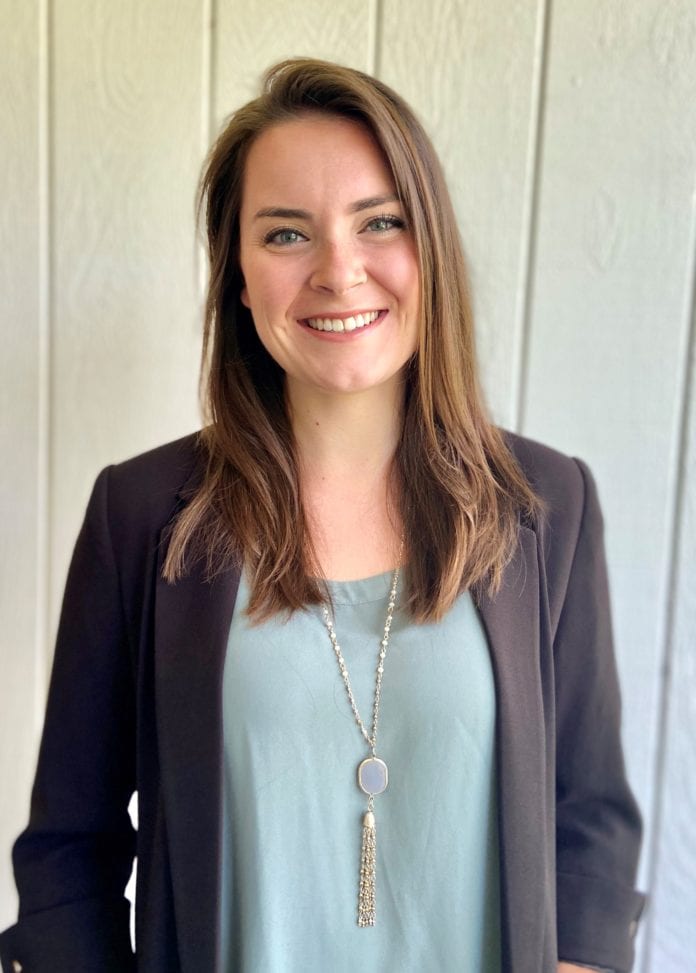Jennifer Scanlon, DNP, Vanderbilt Children’s Hospital (VCH) nurse and graduate of Belmont University’s Doctor of Nursing Program (May ’20), sought to determine how stakeholder race, trust and education influence participation barriers in clinical research through her scholarly project, “Predictors of Barriers to Participation in Clinical Research in Adults Living in the Southeastern United States.”
The project – which was the first collaboration between Belmont’s School of Nursing and the Meharry-Vanderbilt Alliance (MVA) – utilized secondary, cross sectional survey data collected between 2014 and 2016 through the former Mid-South Clinical Data Research Network (CDRN), currently known as the STAR-CRN.
“We have underrepresentation in minority races,” Scanlon said. “In those races, there are the greatest health disparities. If we don’t have adequate representation in minorities, we won’t be able to treat them effectively, which will worsen disparities that already exist.”
Scanlon connected with MVA Research Assistant Professor of Medicine Alecia Fair, DrPH and Belmont University Adjunct Instructor of Mathematics David Phillippi, PhD, who served as Scholarly Project Team Managers. Belmont University Director of Graduate Nursing Studies Linda Wofford, DNP served as the Scholarly Project Advisor.
“Dr. Fair and MVA Research Assistant Professor Sarah Stallings, PhD, came to Belmont to introduce datasets they had available,” Scanlon recalled. “They talked about gaps they’d seen, which was why they had a dataset, and it was the perfect thing. I was like, wow, this is what I want to do.”
The dataset consisted of, 5,000 respondents. It came from the former Mid-South Clinical Data Research Network (CDRN), currently known as the STAR-CRN, and was a study of consumer interests and attitudes towards research.
Her research lasted roughly two years, culminating in the fall of 2019. The project’s results indicated that numerous variables impacted different individual’s participation in research.
Scanlon asked how a person’s level of trust and education affect the way they view research. “That analysis showed a lot of different things depending on race and ethnicity. There is a ton of variability in how people perceive research, and it goes back to how there are a lot of personal and environmental factors that influence a person’s decision,” she said. “An individual’s trust, race or education can really influence how they perceive research. Clinicians recruiting participants need to be aware of those characteristics to effectively introduce research.”
At the same time, the results support the importance of trust between patients and healthcare providers. Its conclusion states, “Medical providers involved in recruiting and engaging participants in research must have heightened awareness, consideration and appreciation of the complex relationships of personal and environmental factors that make a participant and their attitudes, specifically towards research, unique.”
Scanlon, who works in trauma and surgery at VCH, said she has always had a passion for minority and underserved populations. Even before this project, she was drawn to research in social determinants of health.
“I’m going to be a Doctor of Nursing Practice, and that role is looking at the healthcare system and closing clinical gaps in research,” she said. “Looking at healthcare as a whole, through this research, I have several future steps, looking specifically at the DNP role and how they represent underrepresented populations.”
She added, “There’s definitely a lot I could do in the future because of this project.”
About the Meharry-Vanderbilt Alliance
Founded in 1999, the Alliance bridges the institutions of Meharry Medical College and Vanderbilt University Medical Center. Its mission is to enrich learning and advance clinical research in three primary areas — community engagement, interprofessional education and research — by developing and supporting mutually beneficial partnerships between Meharry Medical College, Vanderbilt University Medical Center and the communities they serve. Through community engagement, the Alliance serves a large community of stakeholders including surrounding universities and colleges, community organizations, faith-based outlets and community health centers. Its interprofessional education enhances students’ interdisciplinary understanding and improves patient outcomes through integrated care. The research conducted provides access to experienced grant writers and materials supporting the grant application process and facilitates grant-writing workshops.



